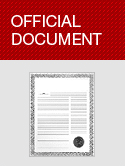An Iranian judge rejected a witnesses’ testimony in an assault case because he shaved his beard

An Iranian judge tossed out a witness’ testimony owing to the fact that he had committed the repeated “minor sin” of shaving his face for years, according to a May 2017 verdict.
The judge, whose name and court were redacted from the official document, cited Article 181 of Iran’s Islamic Penal Code in his ruling. The Article provides that the testimony of individuals who have committed a major sin, or have committed a minor sin repeatedly, is not permissible in a court of law.
Such “sins” are nowhere defined in Iranian law. “Major” sins as defined by the website of one Iranian cleric, Hamed Shad, include “despairing of God’s mercy,” sorcery, and wine consumption, while minor ones include entertaining lustful thoughts and fantasies, defiling a mosque, and not responding to the “salaam” greetings of others.
The judge cites other factors in his non-guilty verdict, such as the inconclusiveness of a forensic medical report and the parties’ prior history of litigation.
The verdict document, circulated on social media, was made available by the @Hoghooghivaghazaie (“Legal and Judicial”) channel.
The full text of the verdict is available in English below:
--
Date of Preparation: May 30, 2017
Case --- Criminal Court of --- Final Decision No. 9609971742400275
Plaintiff: Mr. Nader ---
Defendant: Mr. ---
Charge: Intentional injury with a sharp pointed object
Proceedings: On November 5, 2016 the plaintiff entered a complaint against the defendant that he had suffered deliberate bodily injury inflicted by a knife and had also had a phone stolen. Branch One Investigative court, after preliminary inquiries, issues a final resolution and sent an indictment to the court on March 28, 2017. After filing the case, the court determined a time for a hearing, which it then postponed until witnesses could appear to testify. The court session was then held, and the following decision was made:
In the case of Mr. --, son of --, 30 years of age, with no criminal background, released on a [guarantee provided by another party], facing the charge of intentional injury to the plaintiff (Mr. --- represented by --- ) with a sharp pointed object, per the indictment issued by the Public and Revolutionary Prosecutor of --- County: in light of the fact that the defendant denied the charge at all stages of investigation and expressed that he had not struck the plaintiff, and that the plaintiff’s complaint owed to the fact that the defendant had previously brought a complaint against him for which he was convicted, and that despite the court’s issuing and promulgating an order for witnesseses, on the appointed day the plaintiff introduced only one individual as a witness and the defendant furthermore did not introduce a witness, and that the plaintiff’s single witness expressed that he was with the plaintiff, who says that the defendant took the plaintiff out of the car and stabbed the plaintiff in either the left or right ear (independent of the fact that [the witness] had doubts as to the location of the wound, and given that per Article 181 of the Islamic Penal Code, in cases where a witness has committed a major sin or has repeatedly committed a minor sin - [the witness] has shaved clean with a razor for some years – until it is established that [the witness] has changed his practice and [the court] is assured that [the witness] is competent and just, his testimony will not be accepted) and that in this case no other evidence exists substantiating the charges in a way which would overcome the presumption of innocence or be grounds [for a “judge’s knowledge” decision], and that the forensic medical expert’s report by itself cannot prove the plaintiff’s claim; therefore, the Court does not consider the defendant’s crime to have been proven, and with reference to Article 37 of the Constitution and Article 4 of the Code of Criminal Procedure, pronounces a verdict of “not guilty” for the defendant. This verdict [issued in the presence of the defendant] may be appealed within 20 days to the honorable appeals courts of --- Province.
Head of the Branch One Criminal Court in --- County.
[Signature]